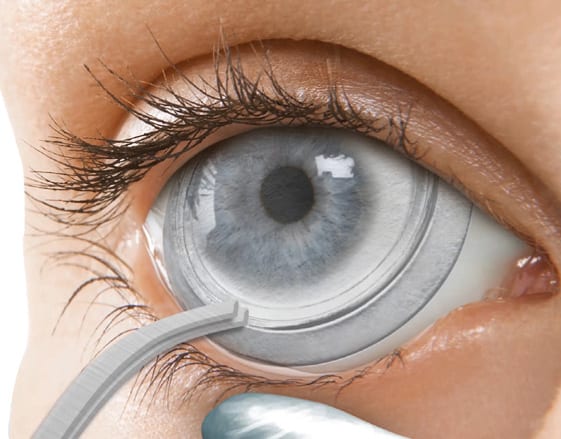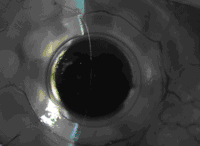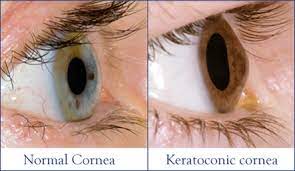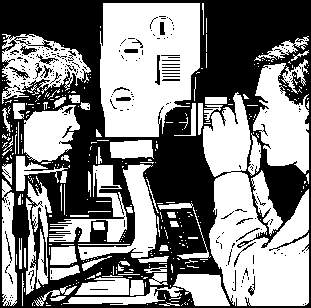Unless you have naturally perfect vision and have never needed corrective lenses, you are probably aware that your eyes can change over time. Some changes as you age are regular and expected; others are more problematic – yet often preventable. Here is a look at how your vision might change over time and the importance of regular eye exams by a qualified optometrist also in Madrid.

Childhood and adolescence
Good vision is key to a child’s academic success. During the school years, the demands on a child’s vision grow as the print in textbooks shrinks and the amount of time spent studying increases. Kids must perform various daily tasks, from reading and writing to viewing chalkboards and using computers.
Learning can be complex when there are vision problems present. Furthermore, a child may not even realize that there is anything wrong with their vision, so they may be unable to tell you. That’s why regular eye exams by a qualified optometrist in Madrid are so important. It would help if you also kept an eye out for symptoms of a vision problem or eye health issue, such as eye rubbing, frequent blinking, squinting, covering one eye, tilting the head to one side, or frequent headaches.

Young adulthood
Young adults typically have good overall eye health and vision. During these years, it’s essential to continue protecting your eyes during everyday activities to avoid worsening vision and delay age-related eye issues for as long as possible. The most common eye issues from 19 to 40 are eye injuries and visual stress. However, good vision remains critical as you pursue a college degree, establish a career, and raise a family. To protect your eyes during the young adult years, you can:
- Limit the amount of time you spend on your computer and phone. Continual exposure to the light emitted from these devices can slowly damage your retina.
- Protect your eyes from the sun. UV rays can damage your eyes over time, so wear sunglasses with UV-A and UV-B protection and a hat or visor in Spain.
- Avoid smoking. Smoking exposes your eyes to dangerous chemicals and increases your risk of developing cataracts and macular degeneration.
- Get regular eye exams. While most young adults enjoy stable vision, problems can develop without noticeable symptoms. Schedule – and stick to – annual eye exams.
Middle adulthood
In your 40s, 50s, and 60s, you may notice mild to moderate changes in your vision that may progress over time. This occurrence is a typical and expected age-related change known as presbyopia. You may begin having trouble seeing close-ups, as when reading or working at a computer. You may find yourself holding reading materials farther away from your eyes or removing your eyeglasses to see the print better. Switching your prescription to bifocal or multifocal lenses can solve this problem.
It’s important during these years to look after your overall health because it directly affects your vision and eye health. For example, people with certain conditions, such as diabetes, hypertension, and high cholesterol, are more likely to develop age-related eye conditions. So are people with a family history of macular degeneration or glaucoma and people with visually demanding jobs. Be sure to adhere to a schedule of regular eye exams also in Madrid. If you notice any unusual symptoms (fluctuating vision, flashes or floaters, loss of peripheral vision, or distorted vision), contact your optometrist in Madrid for an urgent appointment.
60 and beyond
After you turn 60, you are more likely to experience a range of eye diseases that can cause permanent changes to your vision. The earlier you detect these problems, the more likely you’ll be able to treat them effectively and retain good vision for longer. Some common age-related eye diseases include:
- Macular degeneration
- Cataracts
- Diabetic retinopathy
- Glaucoma
- Dry eye
- Retinal detachment
Driving a car may also become more challenging during these years. You may have trouble in a situation such as;
- reading road signs,
- judging distances and speed
- perceiving colour correctly
- adapting to bright sunlight
and these problems can crop up before you even become aware of any changes in your vision.
Your optometrist in Madrid, Dr Fernandez-Velazquez, can detect many problems before you have symptoms, and early treatment is key to optimal outcomes. Regular eye exams remain consistently critical from early childhood through the senior years. Contact us today to make appointments for every family member to maximize the odds of healthy eyes and a clear vision for life.
Keeping your eyes healthy at all times
As trusted eye care providers in Madrid, we service patients suffering from chronic eye issues. If it’s time for you to see an eye doctor, Centro Fernandez-Velazquez can help you to make your appointment. At Centro Fernandez-Velazquez, we have provided the best eye care services for many years in Madrid for the English-speaking community for more than 20 years. You can check our areas of speciality and qualifications here.
Call us today at 915 417 419 to schedule your first in-person consultation. If you need further information, you can contact our office here.
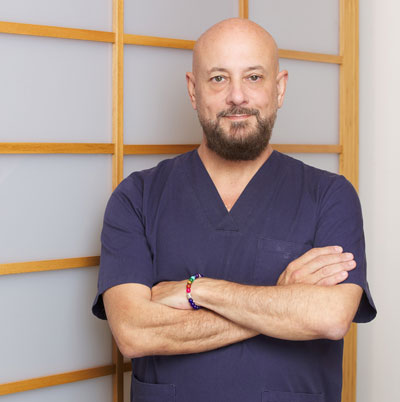
Dr. Fernando Fernandez-Velazquez was born in Madrid, and attended University of Madrid, where he majored in Optics. He then received his Doctor of Optometry degree at New England College of Optometry located in Boston, Massachusetts.
He continued his optometry education and completed a program with emphasis in Contact Lenses and Ocular Diseases at City University of London prior to becoming a member of the British College of Optometrists.
Fernando has also worked as an Optometrist in the Hospital Eye Service and has suc

